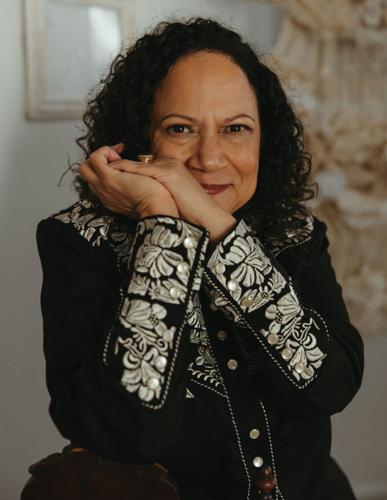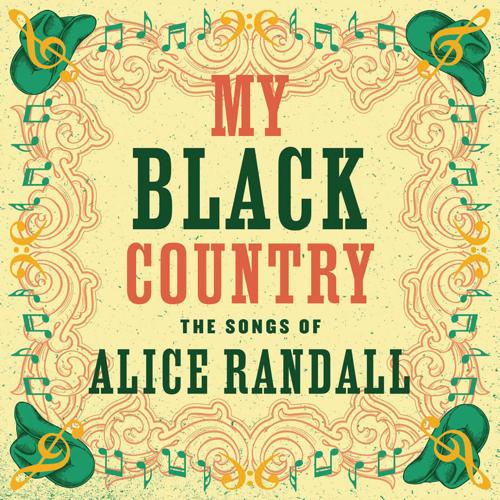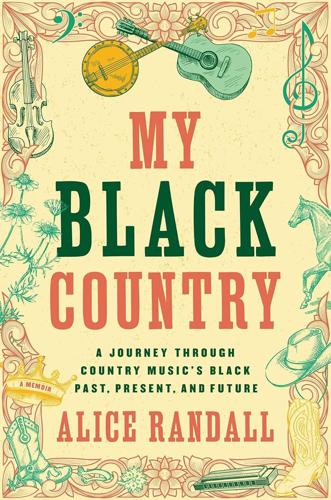
Alice Randall
Alice Randall’s My Black Country was a lifetime in the making.
The Nashville multihyphenate’s new memoir and accompanying collaborative album draw from Randall’s four-plus decades as a songwriter, professor, author and mother. Together they offer a glimpse at the life of a Black woman who deeply loves a genre that doesn’t typically love her back: country music.
“In some ways, the book truly, truly started 41 years ago when I moved [to Nashville],” Randall tells the Scene. “Some of those songs, like ‘Girls Ride Horses Too,’ also date to the ’80s. This really started way, way, way back.”
The impetus for this project is a bit more recent. A few years ago, Randall was living in an apartment downtown near the Cumberland River while working on her 2020 novel Black Bottom Saints, a vibrant tribute to her childhood hometown, Detroit. She was asked to create a Spotify playlist of songs she’d written, but a problem quickly presented itself: The songs, all recorded by white artists, didn’t capture Randall’s vision or experience.
“I was very frustrated when I was listening to those old songs, how the identities of the heroes and sheroes that I had tried to capture — this sort of Black West, Black South, the rural South, and some of the migrated-north urban Black South — had been erased from those songs by the recordings,” she says. “So I started to imagine there would be something different.”
Randall first envisioned “one great voice going through the songbook” to choose the songs that most resonated with them. Randall cites her daughter, author and poet Caroline Randall Williams, for helping brainstorm and enlist the album’s impressive roster of singers. Among them are Adia Victoria, Rissi Palmer, Allison Russell and Rhiannon Giddens.
Williams met Giddens in the mid-Aughts, while Williams interned in the music department of the 2007 film Great Debaters. Giddens’ then-band, the Carolina Chocolate Drops, performed in the film, and Williams, a quickly converted fan, shared the music with Randall, who fell in love too. Both Williams and Randall would cross paths with many of the other artists on the record in later years, giving the music a lived-in, familial feel.
“This album was everything I had wished for in 40 years,” says Randall. “Hearing these songs be fully real was a dream come true. [These women] rode to the rescue of my legacy. … The music business can be brutal and crushing. The generosity and the genius that these women brought to the party of the album was just extraordinary.”
The first track released from the record is a perfect example. The rendition of “Went for a Ride” cut by Radney Foster for his 1992 debut Del Rio, TX 1959 emphasizes a nostalgic view of the Old West. Adia Victoria’s version on My Black Country is astonishingly different: Though she sings all the same words, her delivery and the arrangement emphasize the description of cowboy life as unforgiving that’s right there in the lyrics but obscured by the production of the earlier version.

Randall returns the favor, exploring the legacies of several Black country stars in the book My Black Country. She weaves her own story into those of DeFord Bailey, Ray Charles, Lil Hardin, Herb Jeffries and Charley Pride. She connects the dots between her love for country music in her youth and how those artists helped her find her own path, all while preserving and celebrating the creative feats of pioneering Black artists who have largely been ignored by the broader country machine.
“Black country geniuses rode in to rescue my legacy,” she says. “I hope I have done that fiercely. There’s a wonderful song on the new Beyoncé album [Cowboy Carter] called ‘Protector.’ It’s a mama song. Ray Charles didn’t need any protection. But I hope I have been the protector, in some very significant ways, of DeFord Bailey’s legacy, Lil Hardin’s legacy, Herb Jeffries’ legacy — because they need protection. I just had the joy of celebrating with Mr. Ray Charles and Mr. Charley Pride, because they didn’t need any protection.”
Randall’s tour in support of My Black Country starts April 10 in Brooklyn, the day after the book is out, and visits Parnassus Books on April 12, release day for the album. (Tickets were sold out at press time.) She’ll be the honored guest at the third anniversary celebration for Black Opry, an organization that’s been working hard to foster community among and support visibility for Black country and roots artists, April 25 at City Winery.

Randall carefully chose each location for the tour, noting a historical or personal connection to each. Her June 7 appearance at the Smithsonian’s National Museum of African American History and Culture, for example, is noteworthy for the institution’s understanding of the significance of both Randall’s work and Black country music more broadly. That museum, Randall says, “approached [her] first to collect [her] artifacts of country music” — notably, not a Nashville-based institution.
That anecdote is a resounding endorsement of the necessity of Randall’s My Black Country project, as Nashville has yet to recognize — or even acknowledge — the majority of Black artists’ contributions to country music. Randall reflects on Hardin, who also wrote a memoir; tragically, the manuscript was lost to time, leaving her story never fully told.
“I learned from Lil the absolute importance of telling your own story, and how important that will be to other people. I am the only Black woman who’s made it 41 years in country music, as far as I know, who’s also seen some success.”















